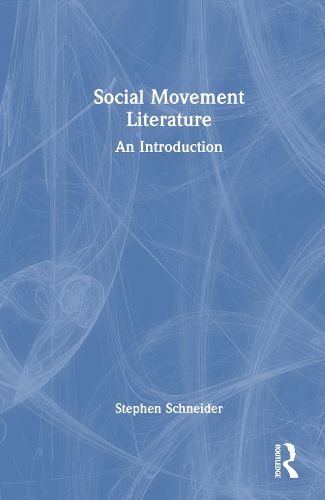Readings Newsletter
Become a Readings Member to make your shopping experience even easier.
Sign in or sign up for free!
You’re not far away from qualifying for FREE standard shipping within Australia
You’ve qualified for FREE standard shipping within Australia
The cart is loading…






Social Movement Literature introduces readers to the study of those cultural texts that have come to define modern social movements. Looking at movements such as the US civil rights movement, gay liberation movement, environmental movement, and contemporary movement such as #metoo and Black Lives Matter, this volume focuses not just on the texts that social movements have produced, but also on those that have inspired and been inspired by those movements. As such, Social Movement Literature seeks to address a number of key questions: how do social movements develop and present not just their goals, but also their broader identities, using texts and other media? How are these movement texts received and further disseminated? Are there common features across movement texts? How and why do some of these texts continue to resonate today? By combining both textual and historical approaches to the analysis of social movements, this volume aims to give readers both an understanding of how social movements emerge and why they remain both political and culturally relevant today.
$9.00 standard shipping within Australia
FREE standard shipping within Australia for orders over $100.00
Express & International shipping calculated at checkout
Stock availability can be subject to change without notice. We recommend calling the shop or contacting our online team to check availability of low stock items. Please see our Shopping Online page for more details.
Social Movement Literature introduces readers to the study of those cultural texts that have come to define modern social movements. Looking at movements such as the US civil rights movement, gay liberation movement, environmental movement, and contemporary movement such as #metoo and Black Lives Matter, this volume focuses not just on the texts that social movements have produced, but also on those that have inspired and been inspired by those movements. As such, Social Movement Literature seeks to address a number of key questions: how do social movements develop and present not just their goals, but also their broader identities, using texts and other media? How are these movement texts received and further disseminated? Are there common features across movement texts? How and why do some of these texts continue to resonate today? By combining both textual and historical approaches to the analysis of social movements, this volume aims to give readers both an understanding of how social movements emerge and why they remain both political and culturally relevant today.